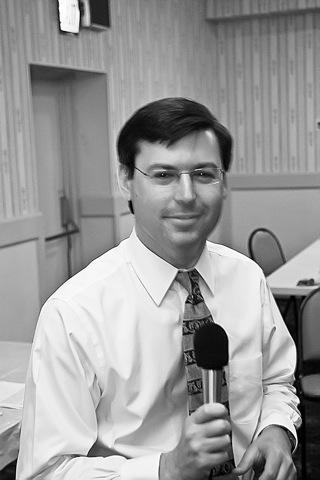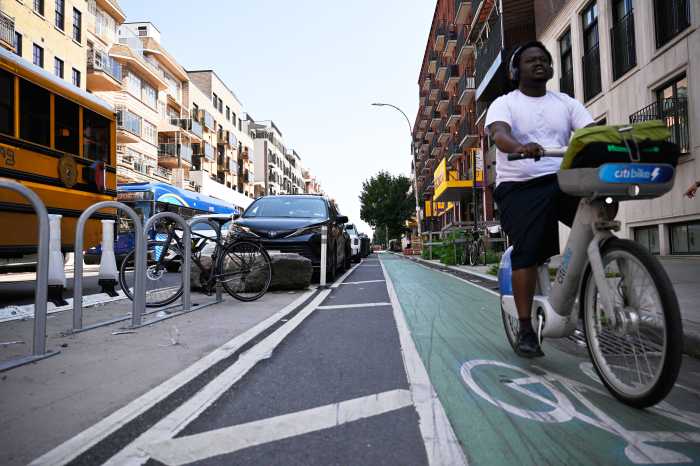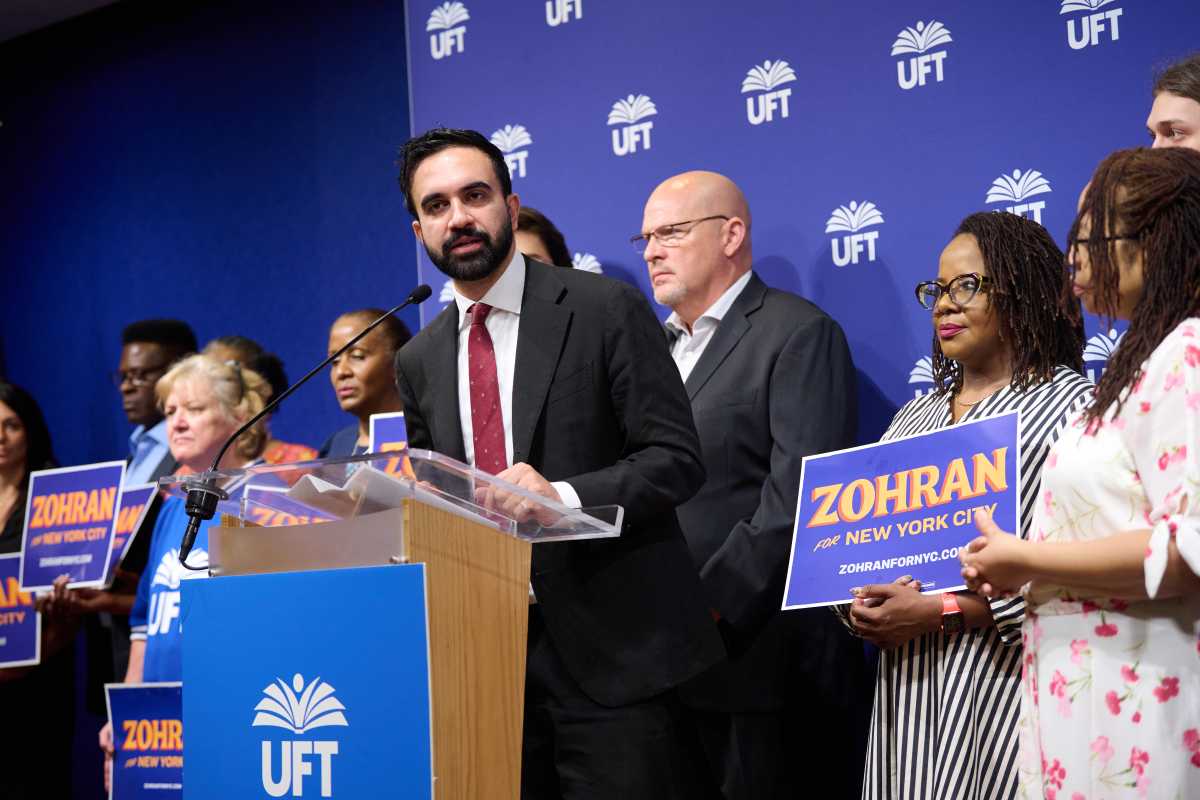The richest man in the city doesn’t have a clue about what regular people are going through.
That’s the message Democratic hopefuls for the offices of New York City public advocate and comptroller delivered to a gathering inside Temple Agudath Shalom, 3714 18th Avenue near Coney Island Avenue, this week.
“The mayor doesn’t listen to teachers and parents,” Councilmember Bill de Blasio declared. “He does not know anything about life in our neighborhoods.”
De Blasio is hoping to succeed Betsy Gotbaum as New York City’s next public advocate. Gotbaum was first elected in 2001 and again in 2005.
“People from Brooklyn have a different perspective,” de Blasio said. “We need to have Brooklyn on a larger stage.”
Fellow City Councilmember David Yassky blasted Mike Bloomberg for creating a city that is “all Wall Street and minimum wage.”
“I think you can count on me to look after our neighborhoods here,” Yassky said.
As New York City’s next comptroller, Yassky said that he would be in a position to “push the Democratic agenda forward” and chided the mayor for wasting money on “overseas tourism bureaus.”
Despite the Brooklyn−centric pitch, Assemblymember Jim Brennan said that he is throwing his support behind Queens Councilmember David Weprin for comptroller.
Weprin, son of former Assembly Speaker Saul Weprin, had the most caustic criticism reserved for the mayor, declaring Bloomberg’s successful bid to overturn term limits a “disgrace to democracy.”
“That was pushed through with a lot of arm−twisting,” Weprin said. “There should have been a referendum.”
Brooklyn son and long−time civil rights champion Norman Siegel, however, appeared to win over the crowd with his progressive vision of reinventing the office of public advocate.
“This office should be much more vocal and visible,” Siegel said. “It has been invisible the last seven and a half years. Within two years [of being elected] no one will say, “who is the public advocate?”
As public advocate, Siegel said he wants to have at least one office in all five boroughs and a 1,000−strong social justice network capable of identifying abuses and swiftly swinging into action.
“It can’t be a one−person show,” Siegel said. “There has to be a team.”
Siegel slammed the largely monochromatic and male MTA board of directors, calling for new rules requiring elections and a June 1 boycott of the transit system, followed by a town hall meeting aimed at finding further ways of reforming the MTA.























